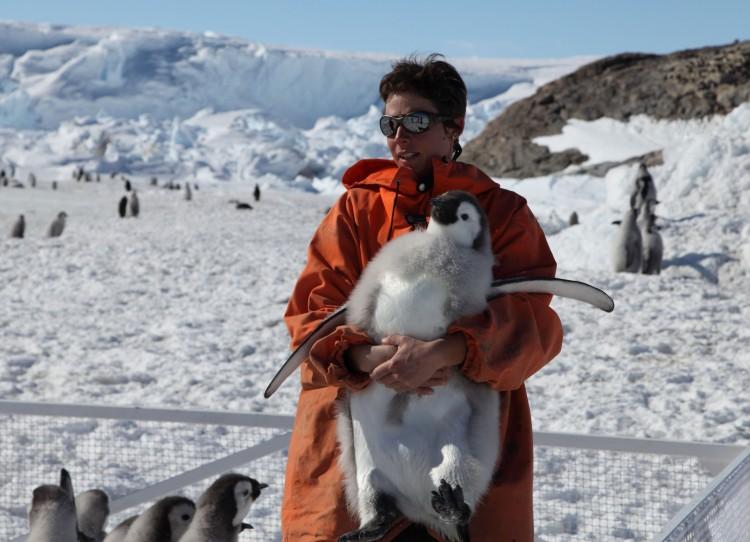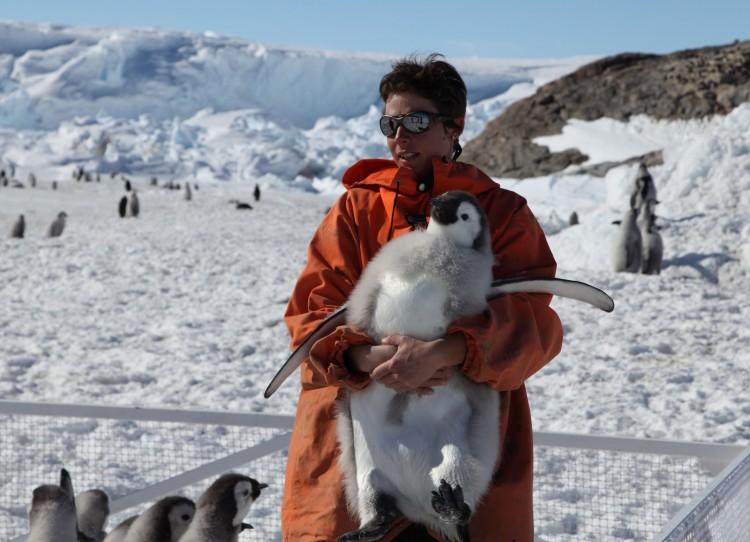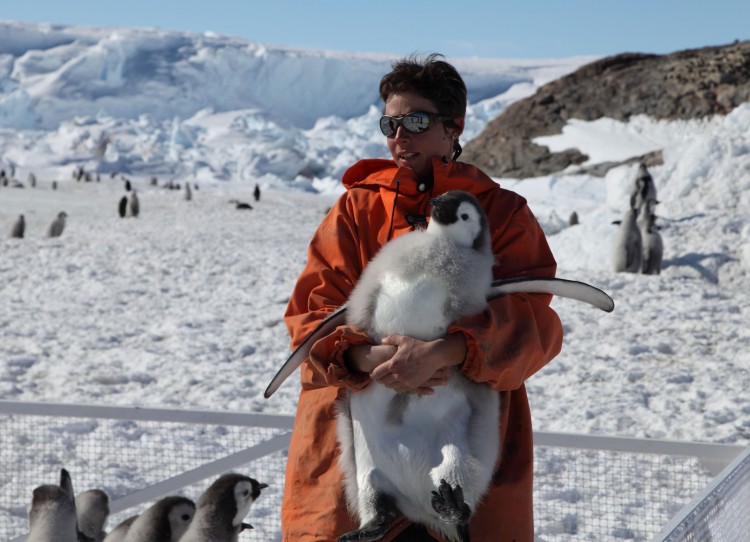[video]www.youtube.com/watch?v=Hn7BnPvHK9M[/video]
The Emperor Penguin may eventually vanish along with the sea ice in Antarctica if temperatures keep rising at their present rate.
According to a multidisciplinary study, populations will gradually decline until around 2040, followed by a rapid drop as the ice area falls below a usable threshold for these big birds to subsist and breed on.
“As it is, there’s a huge mortality rate just at the breeding stages, because only 50 percent of chicks survive to the end of the breeding season, and then only half of those fledglings survive until the next year,” said study lead author Stephanie Jenouvrier at the Woods Hole Oceanographic Institution (WHOI) in a press release.
As well as affecting breeding, ice loss could also reduce the penguins’ food supply—fish, squid, and krill—due to a concurrent reduction of their planktonic prey.
The researchers analyzed long-term data on the penguin population at Terre Adelie, combined with other information like sea ice forecasts.






